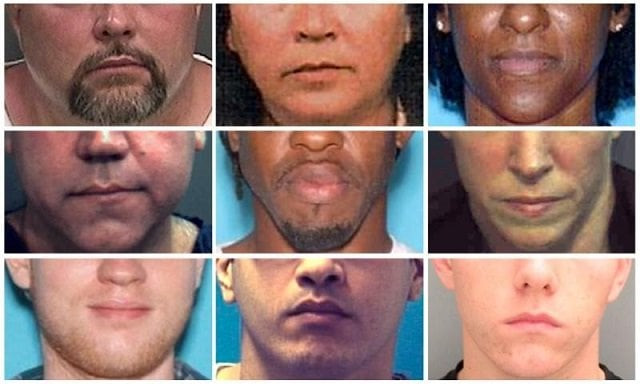US city ends facial recognition program with Amazon
The move came after rights groups raised concerns that the service could be used in ways violating civil liberties

Portraits of suspects, distributed by central Florida area police, are seen in a combination of file photos. PHOTO: REUTERS
The Florida city ended a pilot program last week after its contract with Amazon.com to use its Rekognition service expired, news media reported on Monday.
“Partnering with innovative companies to test new technology – while also ensuring we uphold privacy laws and in no way violate the rights of others – is critical to us as we work to further keep our community safe,” the city and the Orlando Police Department said in a joint statement provided to Floridapolitics.com on Monday.
Amazon under fire for supplying police with facial recognition tool
Amazon could not immediately be reached for comment.
Orlando was one of several US jurisdictions that Amazon has pitched its service to since unveiling it in late 2016 as a way to detect offensive content and secure public safety.
Last month, more than 40 civil rights groups sent a letter to Amazon Chief Executive Officer Jeff Bezos saying technology from the company’s cloud computing unit was ripe for abuse. The letter underscored how new tools for identifying and tracking people could be used to empower surveillance states.
On Monday, the Florida chapter of the American Civil Liberties Union sent a similar letter to city leaders, saying that people “should be free to walk down the street without being watched by the government”.
During the pilot program, Orlando did not use the technology in an investigation and did not use any photographs of members of the public, Police Sergeant Eduardo Bernal told the USA Today newspaper.
Face recognition system IT ministry’s new goal
The power of the technology has been on display in Oregon, where law enforcement uploaded 300,000 mug shots dating to 2001 into Amazon’s cloud and indexed them in Rekognition, according to an Amazon blog post.
Rekognition identified four faces with more than 80 per cent similarity to an image of an unidentified hardware store thief; a Facebook search subsequently helped with the case, the post said.
Amazon said it requires customers abide by the law and be responsible when using Rekognition.
The world’s largest online retailer is not alone: Microsoft and Alphabet’s Google offer recognition services as well. Identifying faces has also become a common feature in consumer products from Apple and Facebook.

















COMMENTS
Comments are moderated and generally will be posted if they are on-topic and not abusive.
For more information, please see our Comments FAQ